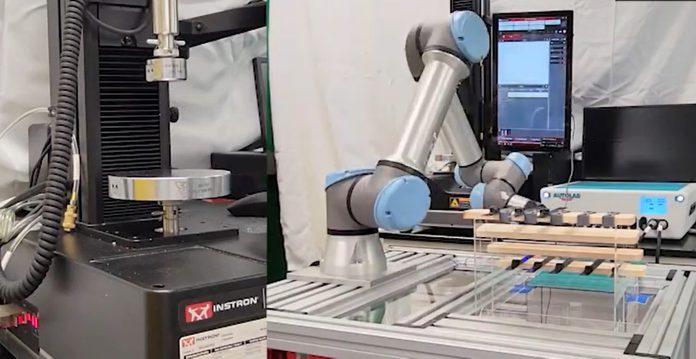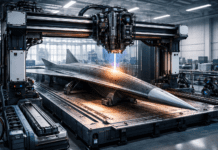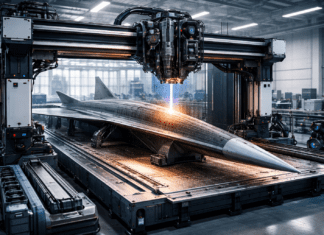This post is also available in:
 עברית (Hebrew)
עברית (Hebrew)
Engineers at the University of Maryland developed a model combining machine learning and collaborative robotics to solve challenges in the design of materials used in wearable green tech. The new accelerated method to create aerogel materials that are used in wearable heating applications was published in the journal ‘Nature Communications’ and could automate design processes for new materials.
According to Techxplore, aerogels are lightweight and porous materials used in thermal insulation and wearable technologies due to their mechanical strength and flexibility. They are similar to water-based gels, but instead are made using air. Despite their seemingly simplistic nature, the aerogel assembly line is complex and researchers have to rely on time-intensive experiments and experience-based approaches to design the materials.
The research team overcame these challenges by combining robotics, machine learning algorithms, and materials science expertise to enable the accelerated design of aerogels with programmable mechanical and electrical properties. The prediction model the team created is built to generate sustainable products with a 95% accuracy rate.
Po-Yen Chen, assistant professor in UMD’s Department of Chemical and Biomolecular Engineering and author of the study, explained: “Materials science engineers often struggle to adopt machine learning design due to the scarcity of high-quality experimental data. Our workflow, which combines robotics and machine learning, not only enhances data quality and collection rates, but also assists researchers in navigating the complex design space.”
The team claims their tool can also be used for other applications in aerogel design, like green technologies used in oil spill cleanup, sustainable energy storage, and thermal energy products (like insulating windows).
Study collaborator Eleonora Tubaldi, an assistant professor in mechanical engineering, concluded: “The blending of these approaches is putting us at the frontier of materials design with tailorable complex properties. We foresee leveraging this new scaleup production platform to design aerogels with unique mechanical, thermal, and electrical properties for harsh working environments.”


























